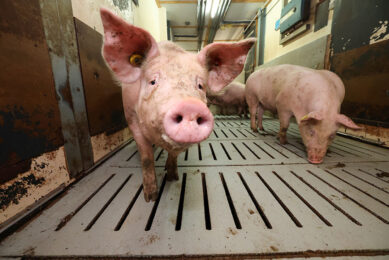Study: Media may be overhyping benefits of organic agriculture
News accounts of organic agriculture and organic food are more likely to be positive than negative and inaccurately claim that organic food is safer, according to a new study by Kansas State University.
The paper, “Coverage of organic agriculture in North American newspapers: Media – linking food safety, the environment, human health and organic agriculture,” is based on research by Kansas State University Associate Professor Doug Powell as well as researchers from the University of Guelph. The study was conducted from 1999-2004 and was recently published in the British Food Journal.
©
The team explored how topics of organic food and agriculture were discussed in five North American newspapers. Using the content analysis technique, 618 articles collected were analyzed for topic, tone and theme regarding food safety, environmental concerns and human health.
©
The analysis found 41.4 percent of the articles had a neutral tone toward organic agriculture and food, 36.9 percent had a positive tone, 15.5 percent were mixed and 6.1 percent were negative, Powell said.
©
“We concluded that articles about organic production in the selected time period were seldom negative,” Powell said. “Organic agriculture was often portrayed in the media as an alternative to allegedly unsafe and environmentally damaging modern agriculture practices. That means organic was being defined by what it isn’t, rather than what it is.”
©
The U.S. Department of Agriculture has repeatedly stated that the organic standard is a verification of production methods and not a food safety claim, Powell noted.
©
Source: American Meat Institute (AMI)
©
©











